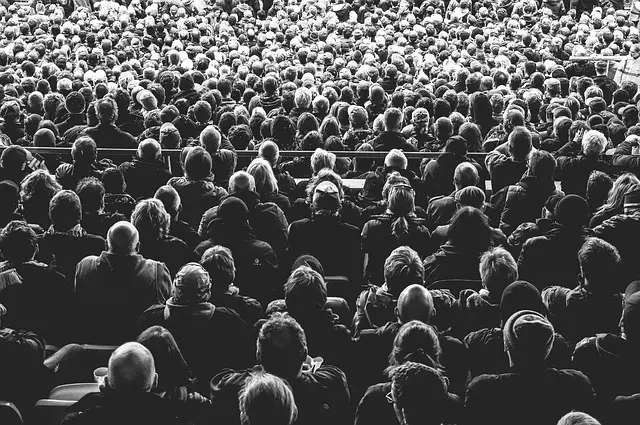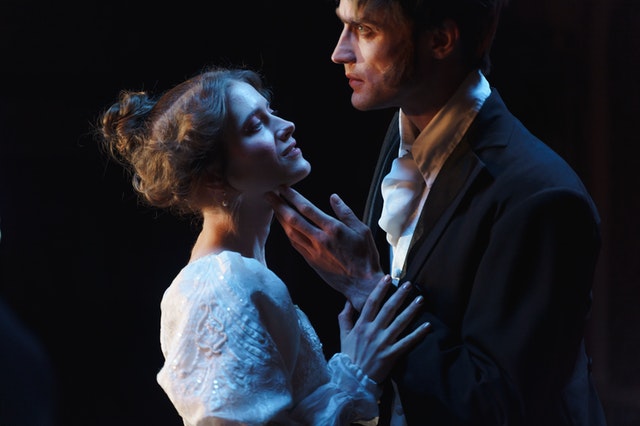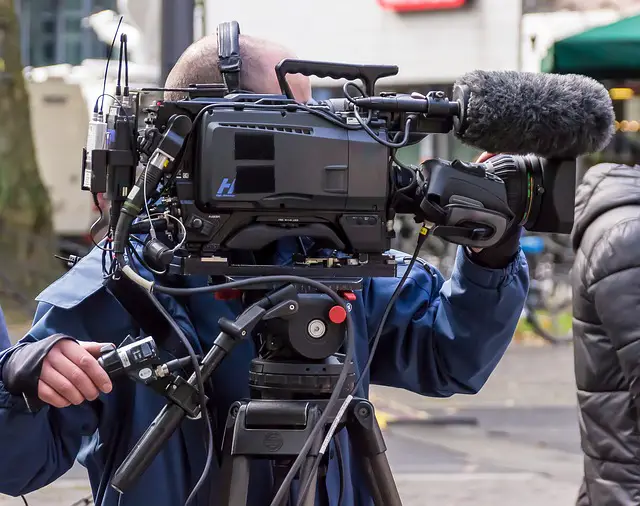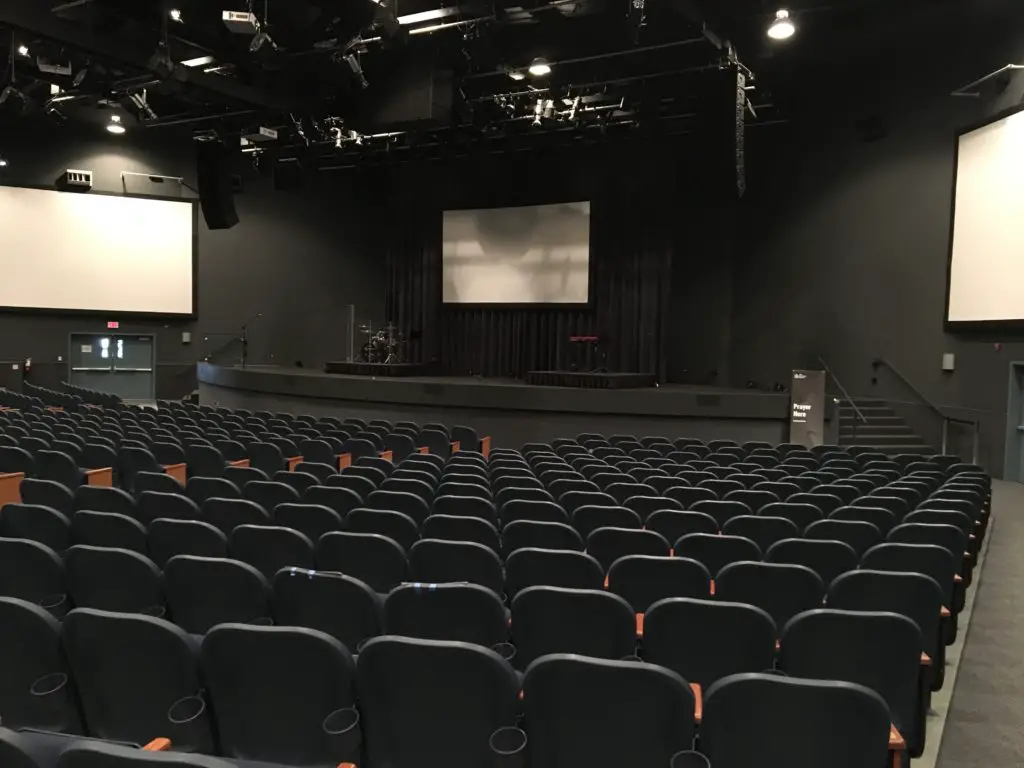In this blog post, we will discuss the 5 major differences between Stage + Screen acting and dive deeper into the roles and challenges actors face while performing.
Stage Acting Vs Screen Acting
Screen Acting is a type of theatre in which the audience can see the actor’s performance, usually from a stage in front of them while screen acting is a type of theatre where the audience cannot see the actor’s performance and instead sees it on a screen.
The stage actor has to use their voice and body language to convey their emotions, while the screen actor can use facial expressions and body language to convey emotions.
1. AUDIENCE LOCATION

The most noticeable difference between stage and screen acting is the location of the audience. When you are performing in theatre the viewers are usually far away from the stage and the performance.
Except for the audience sitting in the front seats, viewers can be as far as 100 feet or more from the performers. Stage performers have to perform for the entire audience, especially for the audience in the back and furthest away from the stage.
To do this stage actors resort to larger-than-life performances.
On the other hand in screen acting the audience is right in front of you represented by the camera. Unlike stage acting here, your performance has to resemble real life and be understated.
Because cameras and speakers are there to pick up all the details screen acting tends to focus more on capturing subtle emotions and unexaggerated actions.
Facial expressions and body language
Stage or theatre actors have to exaggerate their facial expressions and gestures so that every audience member can see and understand what is happening.
This means that stage actors can’t rely on subtle actions like expressing sadness or grief with tears as the viewers in the back rows will not be able to see it and thus realize what is going on.
Screen acting in contrast uses a camera and microphones to bridge the gap between the actors and the audience.
Since lights, cameras, microphones, and special effects can pick up and capture even the smallest of actions like a facial expression and even subtle nuances like pauses and silence for dramatic effect, the screen actor’s responsibility and focus is to portray reality as much as possible.
Therefore it is imperative that film and tv actors speak, gesture, and act just like they would in real life.
2. MATERIAL

Another major difference between stage and screen performance is the material. Theatre plays and performances are usually familiar to the audience because they have been performed numerous times.
The scripts are also available to the public to read. When a play becomes popular, theatre companies all over the world will perform the play to the audience repeatedly for a certain period of time.
Plays like Macbeth, The Cherry Orchard, and A Street Car Named Desire have been performed thousands of times and have eventually become cultural icons. This popularity and familiarity of theatre plays create an expectation from the viewers.
They expect to see and hear the story exactly as it was written. They will not tolerate changes to the dialogue or script which they can notice easily.
Film and Tv scripts on the other hand are being produced for the first time and are unfamiliar to viewers. For the most part, the stories are new and there are no past performances to be compared to.
Therefore the audience has no familiarity and expectation of what the story and the characters will look like. Screen scripts are also usually rewritten, refined and improvised right up to the point that shooting occurs.
As a result screen actors have more freedom in their acting. They can make small changes and mistakes with little or no consequence. Since the audience is seeing a film or tv show for the first time they will not notice if an actor misses their line or forgets some blocking.
The most important part of acting on camera is a natural and believable performance.
Characters

In theatre, in addition to the plot or storyline, the characters have an iconic nature because of the way they have been portrayed in past performances. Viewers and critics will compare your portrayal and acting of a character to those done previously.
The fact that characters of most plays have been performed numerous times before means that your portrayal of a character must align with those of past performances.
Because the audience is familiar with the story and especially the characters your acting can not deviate substantially from those in the past as the audience will complain if they don’t see what they expected.
In Tv and Film, the reverse is true. In most cases, you are the first person to play a character. There is no reference point for comparison and you have the opportunity to bring to the character your own unique touch by using your imagination, understanding, and intuition.
In screen acting the audience is seeing the show and the characters for the first time and therefore have no preconceived expectations as they would have in a stage play. This gives a screen actor more room to develop their character.
Sequence

In a stage performance, the actor starts at the beginning of the story and finishes at the end. Rehearsals can be done randomly where the most difficult scenes are given priority for practice. The actual play itself is however done from beginning to end.
In a screen performance, the show is not filmed starting at the beginning and finishing at the end. This happens because there are various factors that need consideration such as the location of the shoot and the schedule of the actors.
In most cases, scenes that involve a large group of actors or scenes with lots of extras are filmed first. This frees up the actors and extras who are not needed in other scenes to participate in other projects. It also reduces the cost of payroll.
The actors who perform in the majority of the scenes will then continue to shoot. In general Tv shows and Films shoot the middle scenes first, the ending in the middle, and the beginning at the end.
Thus screen projects are rarely shot or performed in a linear fashion.
3. PREPARATION AND PERFORMANCE

Preparation is an important and necessary aspect of both screen and stage performances. How the preparation is done is however very different.
Theatre provides a nurturing environment. Theatre actors have plenty of rehearsal time and the cast gets to bond over the course of time the play is performed to audiences. They also have time to experiment and work with the director before opening night.
Stage actors start out being unfamiliar with their roles in the beginning. By the time they perform publicly however they are highly attuned to their characters having practiced numerous times.
Screen acting sets on the other hand are rather chaotic in nature and involve actors and artists with different specialties. This usually means that actors get a very small amount of rehearsal time if any.
Depending on their role some actors might not get any direction as well. This occurs because films and tv shows hire actors with the assumption that they are ready to perform when they arrive on set.
Screen actors also don’t have much time to interact and bond with their fellow actors before a take.
Performance

Stage plays and performances are delivered live and in real time. During the performance actors only get that one opportunity to get things right and put on a good show. In musicals, actors have to perform their notes and lyrics correctly on the first try.
As a result theatre performers spend a lot of their time in rehearsal, developing their characters and memorizing their lines.
They have to make sure that they memorize their lines and deliver them with accuracy and sequence on stage. They also have to practice and speak with clear diction and enunciation.
There are no do-overs in a live stage performance. Stage actors have to therefore be able to think and act quickly, while under pressure and live scrutiny. They have to remain calm and focused in the event that they forget a line, have a problem with their costumes and props or miss a cue. The show must go on no matter what.
That is why all stage performers should take improv classes. Improv trains actors to think and act quickly when they make mistakes or are faced with situations that they did not anticipate.
Acting in live performances can be mentally, physically, and emotionally taxing on-stage actors. They have to deliver each performance with the same energy and concentration as their previous shows.
Screen performances don’t occur in real-time. Actors get several attempts or takes to get a scene right. Even if they say their lines incorrectly or don’t articulate their words they can still shoot the scene again and correct their mistakes.
In post-production screen actors usually go back to fix any errors they may have done during filming by recording their lines again.

Screen actors face their own unique challenges, however. This challenge arises out of shooting scenes out of sequence. For example, a screen actor may have to perform an intense scene that involves fighting or screaming followed immediately by a laid-back scene where there is laughter and friendly conversations.
Filmmaking is a collaborative process. This process can be time-consuming and challenging, especially when an actor has to film scenes that are out of sequence. This is due to many factors including budget, time, or weather.
An actor may have to perform an intense scene with lots of running and screaming immediately followed by a happy scene with laughing and smiling.
There is very little time to mentally and emotionally reset. This usually tends to drain actors emotionally.
Screen actors also have to deal with script changes that are usually unplanned and spontaneous. They have to learn and memorize new lines quickly while doing other things.
Under such circumstances, the best plan of action for a screen actor is to focus more on understanding the story rather than trying to memorize their lines word for word.
When you know your character intimately and know what is happening in the scene, it makes it easier to know how your character acts in new circumstances without having to memorize your lines a hundred percent.
Chemistry

Theatre actors develop a natural chemistry among themselves because they spend a lot of time with their peers practicing scenes, as well as studying and analyzing the storylines.
They work together on building relationships between characters and study how the different backstories and scenes translate into the final performance. The numerous hours and teamwork that stage actors go through often builds camaraderie and genuine friendship.
For the audience, the chemistry between the actors translates to the characters which make them feel genuine and believable.
Film and tv actors usually meet each other for the first time on set just a few hours before filming starts. They don’t have the opportunity to build a relationship and history with their fellow actors like stage actors do.
Despite this fact, however, screen actors still have to create a bond or relationship between characters that are believable to the viewers.
Actors who just met each other a few hours prior to shooting have to deliver a believable love scene or carry out a scene where two characters are lifelong enemies and are expressing deeply simmering hatred and loathing to each other.
It is therefore vital that screen actors study themselves, people, that they know as well as complete strangers to get deep and meaningful insights about human nature.
Studying the relationships people have with each other, how they interact within those relationships and why they do certain things or actions is an invaluable source of knowledge for actors that is based on real-life and directly applicable.
It is especially effective for scenarios or situations in a scene or script that you have not experienced before.
4. FEEDBACK

Theatre actors get direct and instant feedback from their viewers as soon as they start performing. They understand what the audience is feeling and experiencing throughout the entire performance.
Stage actors get to hear, see and feel the energy felt by the audience.
If the crowd is laughing they know that the humor they were portraying had been received and understood.
If the audience is sobbing or making angry remarks they can be sure that their emotional scenes had hit home. If the audience is silent this is a signal that they should throw more energy and focus into their acting that would project and resonate with the viewers.
Stage actors get a couple of hours every night the play is performed to get the approval of their viewers. If the audience doesn’t like the show one night, the actors have a chance to take note of their mistakes and deliver a better performance the next night.
Stage actors get numerous opportunities to win their audience by being aware of the feedback and refining their performance accordingly. This way they get to create a fanbase.
Film actors don’t get any feedback until the filming is done and the project is released to the public. Unlike theatre actors, they don’t get instant feedback while they are performing.
They also get only one opportunity to get things right. Once the film or tv show is released to the public there is no going back to correct mistakes or adjust their performance.
5. DIRECTION

In theatre, directors instruct and guide actors on how to perform their piece. They spend a lot of time working with actors. Directors are responsible for casting actors for a theatre production.
They are aware of what the actors’ current skillsets are and what they are capable of doing. They also instruct the actors on their blocking.
Theatre directors also work with actors and assist them in building their characters and analyzing scenes.
They offer advice to the actors on how to portray emotion or act out certain scenes in a way that the viewers can easily understand and follow.
They also provide feedback and critiques to actors both during and after rehearsals. The actors will then make corrections and refine their performance as much as possible before opening night.
Theatre actors develop and improve their acting through rigorous work and collaboration with directors to put on an impeccable performance.
In screen acting films and tv, directors direct the scene instead of the actors. Usually casting agents cast actors and actors meet with the director on set on the day of the shoot.
Screen actors get very minimal directing and coaching as they are expected to be able to do this themselves.
Film directors look for actors that know the nuances of acting on camera like staying within the frame and avoiding unnecessary gestures and body movements.
Which is harder acting for the screen or the stage?
It’s hard to compare the two because they are very different. For example, with a live audience, you can get feedback by seeing the audience’s reactions.
You can also use props, costumes, and lighting to help with your performance. With film acting, you need to just know that your performance will be viewed in front of a computer or TV screen.
Conclusion
Acting will be acting, regardless of whether it is for the stage or camera.
The necessities are the equivalent yet how you execute them is very extraordinary. How you recount the story is very unique.
Stage and film resemble recounting similar stories in two very surprising dialects. The significance is there however it doesn’t generally interpret the very same route in one language as it does the other.
Stage entertainers should figure out how to restrain things and be inconspicuous, to discover straightforwardness to extend authenticity on camera.
Film entertainers should figure out how to be over-the-top, venture their voice, be exact with their characteristics and not squirm, as authenticity can be an interruption in front of an audience.
All entertainers should encounter both to be the best working proficient they can be.
Leave a comment with your opinion or any questions you may have below…


